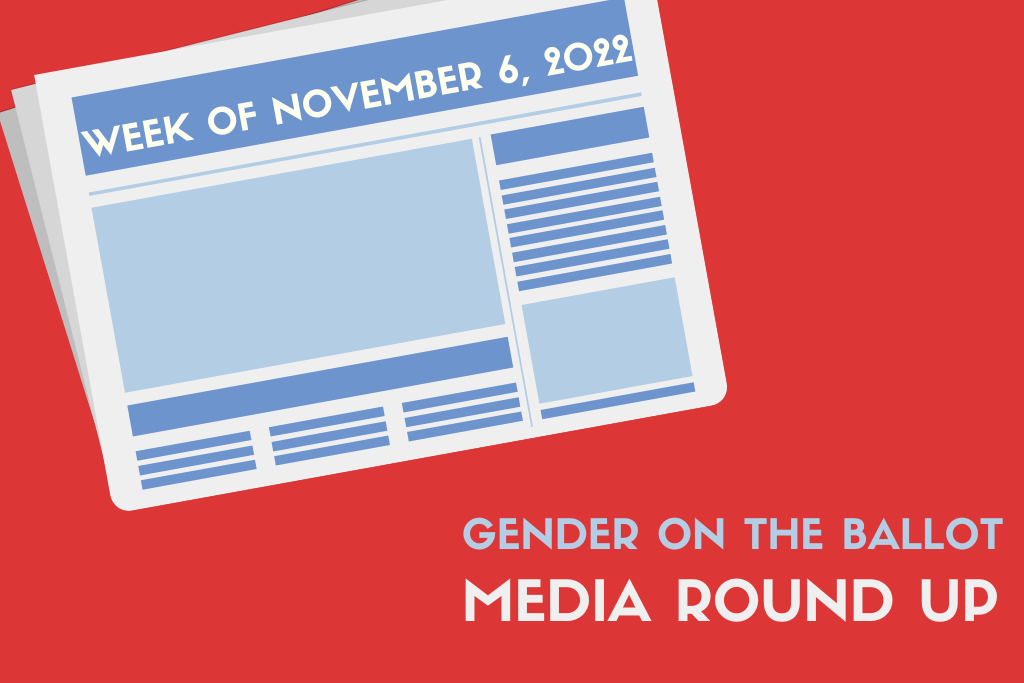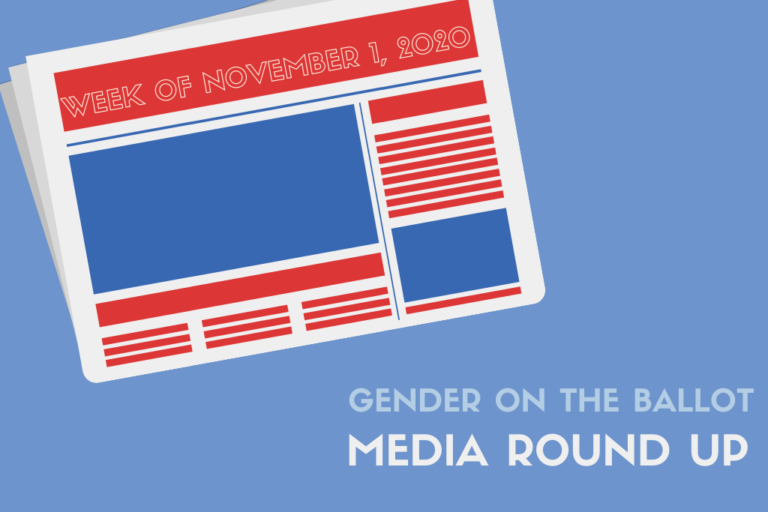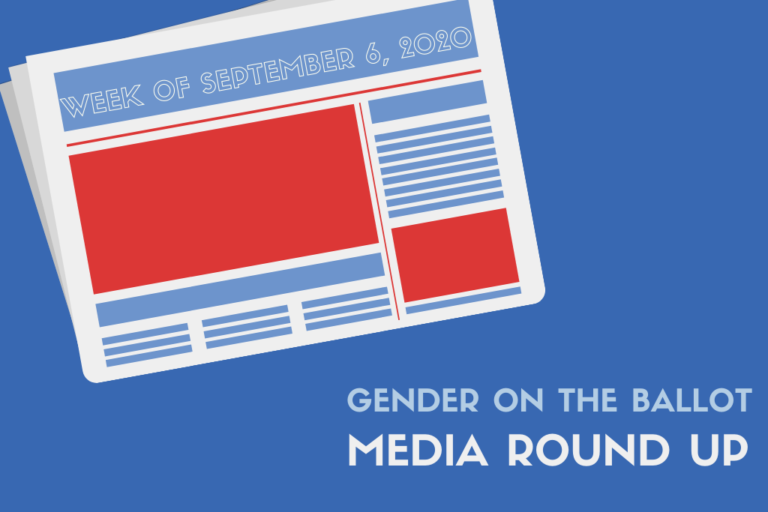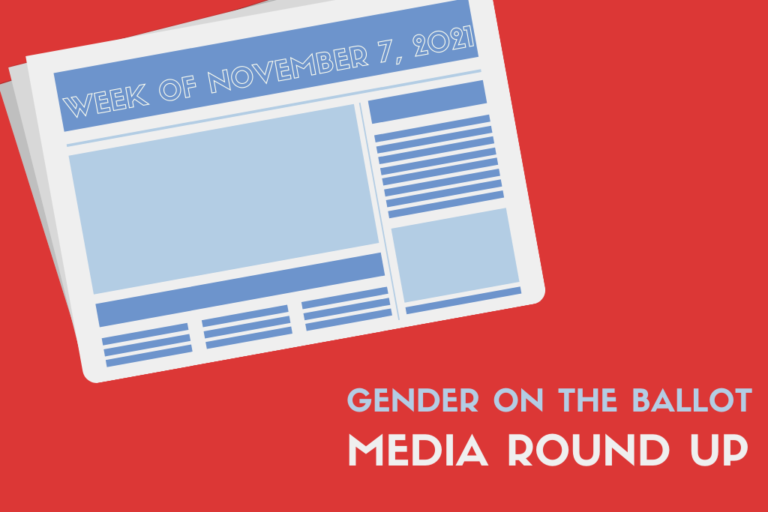Happy Friday! Welcome to our Media Round Up. Each week we’re collecting and sharing our…
Media Round-Up: Week of November 6th

Happy Friday! Welcome to our Media Round Up. Each week we’re collecting and sharing our favorite gender + politics stories. Here’s what caught our eye this week:
Women score multiple firsts in historic midterm races
Shawna Chen, Axios
History was made on Tuesday night for women running for state and federal government positions. Massachusetts and Arkansas elected women governors for the first time, Maura Healey (D) and Sarah Huckabee Sanders (R), respectively. Maura Healey made history nationally, along with Governor-elect Tina Kotek (D) of Oregon by becoming two of the first out lesbian governors in the country. Becca Balint (D) will become the first woman to represent Vermont in Congress and will also be the first out LGBTQ person to represent the state. Summer Lee (D) was elected to Congress, becoming the first Black woman to represent Pennslyvania.
Read the full story here.
With Val Demings’ and Cheri Beasley’s losses, there are still no Black women in the U.S. Senate
Candice Norwood, The 19th*
No Black women have been in the Senate since Vice President Kamala Harris in 2020. This election cycle, two Black women had a chance at changing that: Cheri Beasley of North Carolina and Val Demings of Florida. Both candidates lost on election day despite emerging as competitive candidates and surpassing their opponents in fundraising. Black women tend to face a range of challenges when campaigning, including fighting racial stereotypes, raising money, and drawing publicity to sway voters. Professor of Government and Chair of the Women’s and Gender Studies program at Georgetown University Nadia Brown says, “It’s very disturbing that we would continue to have zero Black women senators for this next term. It’s another indicator that we are failing to be a truly democratic society … We know that more diversity produces better outcomes, and so having people at the legislative table that have different lived experiences leads to better policy.”
Read the full story here.
Did pandemic stress change women’s periods?
Amanda Morris, Washington Post
New studies suggest that the increase in stress for women during the pandemic affected their menstrual cycles in several ways. During the pandemic, women’s stress levels increased due to a multitude of factors, including disproportionate share of childcare and housework and a mass exodus from the labor force. Women who reported high levels of stress also reported early or delayed periods, heavier menstrual flows, increased spotting between cycles, and longer or shorter periods. Martina Anto-Ocrah, an assistant professor at the University of Pittsburgh School of Medicine, said the results were “alarming” due to how an irregular cycle can affect fertility and mental health.
Read the full story here.
Why are way more women suddenly working in construction?
Andrew Van Dam, Washington Post
According to the Bureau of Labor Statistics, the number of women working in construction has hit a record high. As the number of men in construction lagged, women surged into the industry starting in 2016. Washington D.C. has the highest number of women in construction than any other state, with Arizona and Florida also having high rates of women in the field. Hispanic women account for almost all the growth of women in construction.
Read the full story here.






